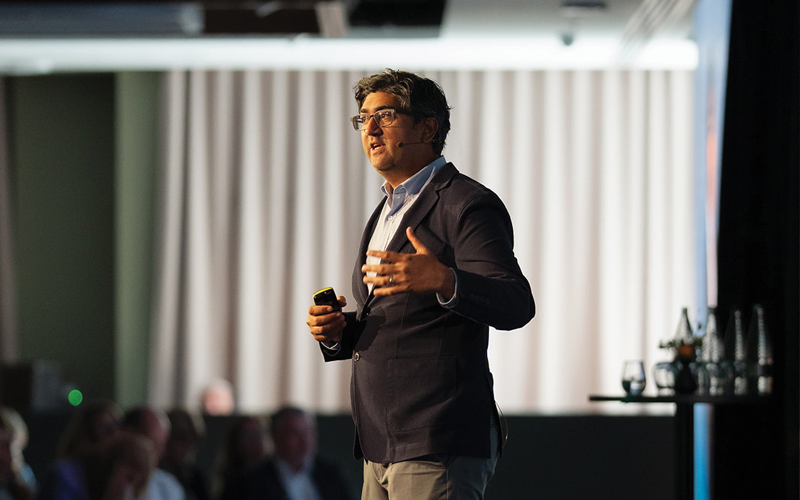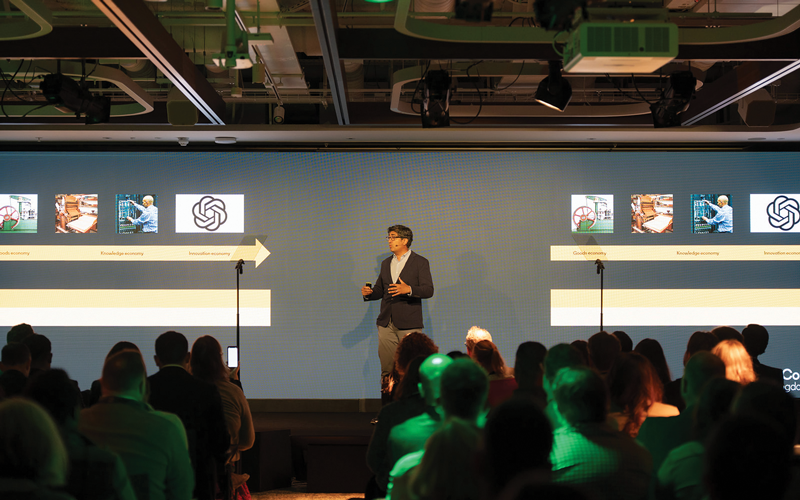Redefining the role of humans at work

Talent leaders are in the midst of redefining work that will be “more pro-human than in any other point in human history”.
So said LinkedIn’s chief economic opportunity officer when he addressed a room full of attendees at the professional network’s London Talent Connect event this spring.
Tackling continuing but “abating” fears that AI will replace humans in work, Aneesh Raman (pictured) argued that the current economy defined by “hard technical skills like coding and analytics” is “on its way out”, to be replaced by a new economy. He called it “the innovation economy”.
“This new economy is going to be one where our unique capabilities as humans – to innovate, to imagine and invent – is going to become our clearest competitive edge as a species at work, moving our ability to innovate to the core of how companies succeed and how careers are built,” Raman said.
A LinkedIn employee for four-and-a-half years, Raman has held his current position for eight months. Before joining LinkedIn, previous roles included war correspondent at global news network CNN and speechwriter for former US president Barack Obama.
He went on to tell the audience that in economic changes, the skills change that are valued most. “And that’s already starting to happen,” Raman said, “because in the innovation economy, the new ‘hard’ skills, the new IT skills, the new in-demand skills are the non-technical skills – in other words, our core people skills.
“I call them the five C’s: communication, creativity, compassion, courage, curiosity. Remember these,” he said. “These are what make us most human.”
Consequently, Raman continued, the key challenge humans face is “unlocking human innovation at levels we’ve never even attempted, let alone imagined to do before”. He reminded the audience that much innovation has occurred at the hands of those born to privilege. Others with the potential to innovate “don’t get the chance to innovate… they were up against socioeconomic inequities in how people access support and learning that they need to innovate”.
“That’s the fundamental breakdown we have to fix as we enter the innovation economy,” Raman said.

To start building the new “home human-centric, more innovation-driving world of work”, he urged audience members to develop a change management mindset to consider what their employees could do now that they could not do without AI, to map employees’ skills and skills needed at their workplaces, incentivise people to learn and to invest in people managers as “frontline change agents”.
He further recommended that frontline managers and employees will need to “break down silos, break down bureaucracy that… suffocates and stifles innovation from ever taking root”.
He reminded the talent leaders in attendance that their roles today are especially significant. “If there is one thing I want you to remember from today, let it be this: You all right here, right now are in the midst of the most impactful moment of your careers, the most important moment of your careers, because in this moment, you get to redefine the role of humans at work in ways that will not just be more consequential than in any other point but human history – but also in ways that will be more pro-human than in any other point in human history.”
Image credit | Jack Aldridge Photography




